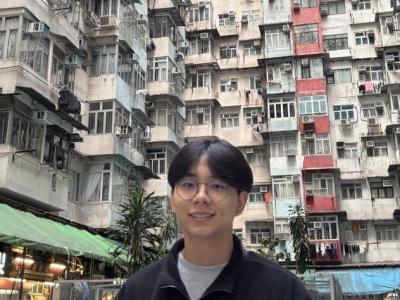
Fourth-year School of Information Systems (SIS) students Cui Linting and Kenny Ngo have done SMU proud by winning the Best Paper award at the 6th Undergraduate Conference in Information Systems hosted by the Information Systems Programme at the Dietrich College of Humanities and Social Sciences, Carnegie Mellon University, Pittsburgh, U.S.A. on 27 February 2016.
The Conference presented a venue for students and faculty from around the world to present and engage with cutting edge undergraduate research. Students were invited to submit research papers and posters reflecting recent research projects or capstone experiences.
The Conference theme was “Humanizing IT”. Participants were to consider the evolving role of IT in all facets of human life. The Conference offered an opportunity for students and faculty to reflect on and contribute to the understanding of the long term challenges and opportunities presented by the rapid advancement in technology and the transformation of our lives as a result.
12 out of seventy papers were accepted and presented in the Conference. SMU’s paper ICT-Travel: Mobile Public Transport Companion for the Visually Impaired won the Best Paper at the Conference. Linting presented the paper on behalf of the team at the Conference.
In their paper, the SMU team shared the iOS application called ICT-Travel for the visually impaired to use the public transport in Singapore which they had developed for their capstone project. The team found that access to public transportation in Singapore remains a challenge for disabled persons. Efforts by the Land Transport Authority are focused on fare subsidies and ensuring wheelchair accessibility on public transport. However, those who are visually impaired face a different set of challenges. With ICT-Travel, the visually impaired are able to overcome the following challenges:
First, route recommendation. Current map services (such as Google Maps), interaction interface (such as VoiceOver), and local bus guide application (such as SGBuses) present various difficulties to the visually impaired when they want to find out how to get from one place to another by public transport. ICT-Travel only requires the user to key in the origin and destination, and a recommended route would be presented to the user. To facilitate the input of origin and destination into their smartphones, the team allowed visually impaired users to use their iPhone GPS to determine the origin. They also created a voice-to-text input method by using the OpenEars software developed by Carnegie Mellon University. For users who frequent a fixed journey, the team created a module to save a recommended trip plan as ‘Favourite’.
Second, notification of bus arrival. ICT-Travel provides updated bus arrival times to the visually impaired by the minute. All the possible bus services that the commuter can take at a certain bus stop based on the recommended route given are listed. User will receive audio notification of the estimated time of arrival of the earliest bus service.
Third, notification to alight. The team built into ICT-Travel a small geofence (i.e. a specified geographic region or virtual perimeter) of about 10 meters radius around every bus stop on the trip. In this way, the app is able to track the number of bus stops left on the trip prior to arrival at the destination. This information is updated in real time with information from the smartphone GPS and subsequently, sent to the user through notifications when they are arriving at their destination. The team also implemented a shake function that will announce the current address of the user as a form of reassurance. On top of that, upon reaching the destination, ICT-Travel will detect if the actual GPS location matches the destination.
By testing the app with visually impaired users from Dialogue in the Dark Singapore on their daily travel routine for more than two months, the SMU team was able to better understand the needs of the users, and continuously refined the app to cater to their specific needs.
Linting said, “It was a great experience to learn from peers and professors from around the world about "Humanising IT”. Their insights on the topic were very impressive, and inspired me to look at IT and life from a different perspective. I realised there are many areas, such as healthcare and migration, in which IT can contribute to improving lives. Winning the Best Paper award will encourage me to continue studying and applying IT to better the lives of people.
“I would like to thank Mr Kenny Ngo and Associate Professor Benjamin Gan for putting this paper together. We could not have completed this capstone project without the contributions from the rest of the team members from SIS: Ng Boon Thai, Chan Si Hui and Cheng Fu Mei. I would like to encourage all students who are interested in Information Systems to participate in such conferences and engage in cutting edge undergraduate research.”
[Featured photo: SIS student Cui Lingting (right) and Associate Prof Benjamin Gan with the plaque and certificate for UCIS 2016 Best Paper award.]


